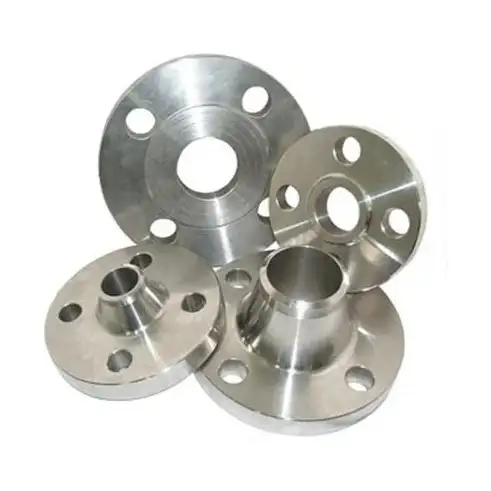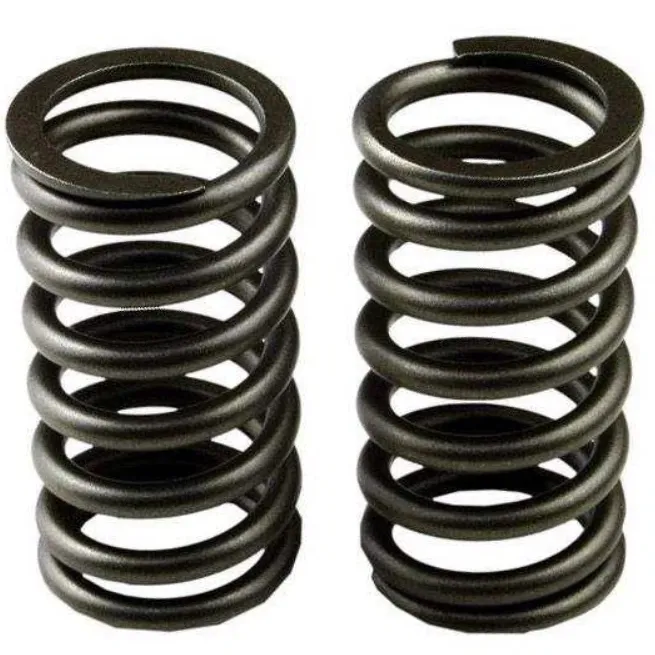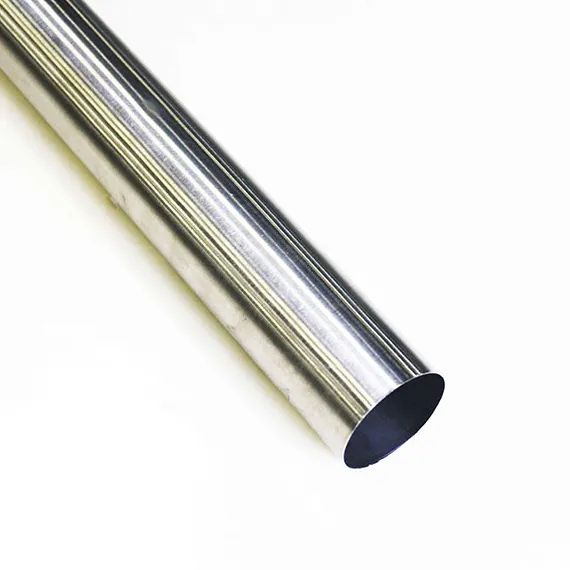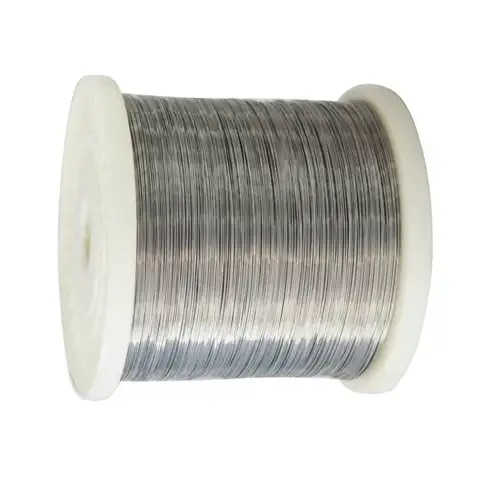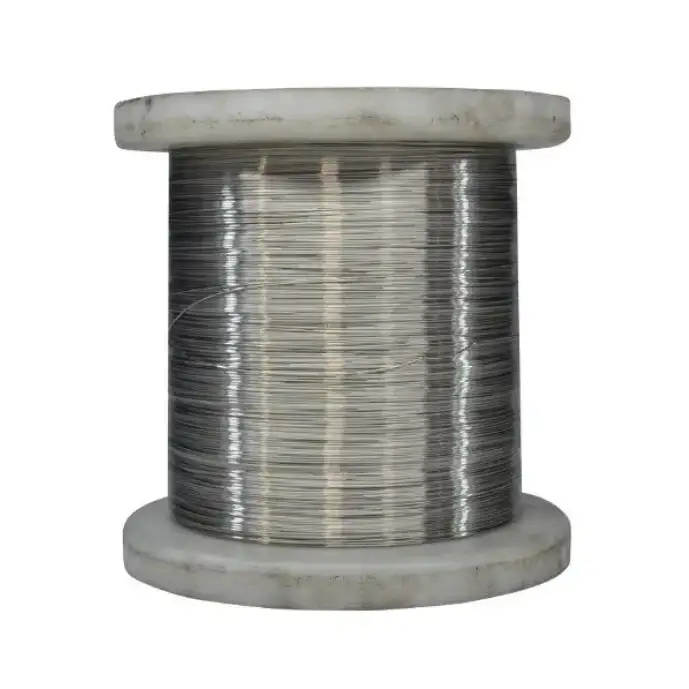For corrosive, seawater, and chemical-service piping where long-term reliability and high strength matter, Monel 400 flanges deliver an excellent balance of corrosion resistance and toughness; where higher yield strength and better fatigue performance are required, Monel K-500 flanges (age-hardened) are the stronger choice. For procurement that demands fast turnaround and factory-direct pricing, MWalloys supplies finished Monel 400 and K-500 forged flanges from China at competitive factory (EXW/FOB) rates and quick stock shipment for standard sizes.
What are Monel 400 and Monel K-500
Monel designates a family of nickel-copper alloys. Monel 400 (UNS N04400) is a nickel-copper, solid-solution alloy prized for broad corrosion resistance and excellent toughness at elevated or subzero temperatures. Monel K-500 (UNS N05500) keeps nearly the same corrosion resistance while gaining substantially higher strength and hardness through additions of aluminum and titanium plus a controlled aging treatment. These two grades are the ones most commonly used for flanges and other pressure-containing components in aggressive environments.
Why choose Monel flanges
-
Corrosion performance: Very good resistance in seawater, brackish water, and many chemical media; Monel alloys resist pitting and crevice attack better than many steels in reducing chloride environments.
-
Mechanical reliability: Monel 400 retains toughness over a wide temperature band; K-500 gives higher tensile/yield strength and improved fatigue life where cyclic loads occur.
-
Fabrication: Both grades are weldable and formable; K-500 requires attention to heat treatment to obtain designed strength.
-
Long service life: For high-value systems (marine intakes, alkylation units, sour service), replacement cost of failures usually justifies the premium material cost.
(Technical datasheets and manufacturer bulletins document these performance claims and recommended applications.)
Standards and specifications that govern Monel flanges
Major standards that specify flange dimensions, materials, and testing you will see in purchase documents:
-
ASME B16.5 — dimensional and pressure-temperature rating standard for flanges (NPS ½ through 24; classes 150–2500). Use this for most ANSI/ASME flange supply.
-
ASTM B564 / ASME SB564 — specification often cited for forged nickel alloy flanges and fittings (supplier forgings made from Monel raw forgings follow this).
-
ASTM B127 — Monel 400 plate/sheet specification (used when ring-type or plate flanges are machined from plate).
When you request quotes, include the standard(s) required, the material UNS (N04400 or N05500), flange class (150/300/600/etc.), face type (RF/RTJ), and required MTC level (EN 10204 3.1/3.2 or equivalent).
Chemical composition & mechanical properties
Chemical composition (typical ranges)
| Element | Monel 400 (UNS N04400) | Monel K-500 (UNS N05500) |
|---|---|---|
| Nickel (Ni) | ~63% (min) | ~63% (min) |
| Copper (Cu) | 28–34% | 27–33% |
| Iron (Fe) | ≤2.5% | ≤2.0% |
| Manganese (Mn) | ≤2.0% | ≤1.5% |
| Aluminium (Al) | — | ~2.3–3.15% |
| Titanium (Ti) | — | ~0.35–0.85% |
| Carbon (C) | ≤0.30% | ≤0.18% |
| (Sources: manufacturer datasheets and industry summaries.) |
Representative mechanical properties (annealed / aged)
| Property | Monel 400 (annealed) | Monel K-500 (aged/peak) |
|---|---|---|
| Tensile strength (MPa) | ~550 MPa (typical) | 850–1000 MPa (depending on aging) |
| Yield strength (0.2% offset, MPa) | ~200–350 MPa | 450–700 MPa |
| Hardness (HRC/HRB) | ~65 HRB (annealed) | Higher (age-hardened) |
| Density | ~8.8 g/cm³ | ~8.44–8.8 g/cm³ |
| Temperature capability | Good to several hundred °C; retains toughness at subzero | Similar but must consider stress-corrosion cracking risk in some aged conditions |
The values above are typical ranges; purchase specifications should state required mechanical acceptance criteria (MTC test values).
Flange types, classes and manufacturing routes
Common flange types available in Monel 400 / K-500:
-
Weld-neck flanges (WNRF) — preferred for pressure service and thick-wall piping.
-
Slip-on flanges (SO) — economical for lower pressure.
-
Blind flanges — used for termination or maintenance isolation.
-
Socket weld / threaded / lap joint — for small NPS sizes or specific piping systems.
Manufacturing routes
-
Forged flanges (ASTM B564) — highest integrity option for pressure-critical systems (common for K-500 and heavy classes).
-
Plate-machined (ASTM B127 plate to ring) — used for large diameters or where forgings are not available.
-
Ring-rolled or welded constructions — occasionally used for very large diameters; specify testing and NDT clearly.
When specifying flanges for heavy duty or sour service, prefer forged and require full traceability and MTC.
Production, surface preparation, welding and heat treatment
-
Welding: Monel 400 is weldable using appropriate Ni-Cu filler metals (ERNiCu alloys). K-500 may be welded, but strength in heat-affected zones and post-weld aging should be considered. Welding procedures frequently call for qualified WPS and MTC with PWHT details if required.
-
Heat treatments: Monel 400 is not age-hardenable; K-500 requires solution anneal and controlled aging to develop peak strength. Improper aging may increase susceptibility to stress-corrosion cracking in certain environments — specify intended temper/condition on purchase orders.
-
Surface finish & protection: Standard mill finish or shot-blasted finish is common; for marine service, passivation and protective packing for ocean freight reduce surface contamination and galvanic risks.
Design & installation considerations
-
Gasket selection: For high-temperature or corrosive media, use gaskets compatible with nickel alloys and the fluid. For RF faces, spiral-wound gaskets or metal jacketed gaskets are common; for RTJ faces, match ring material and groove class.
-
Bolt material: Use compatible bolting (e.g., nickel-alloy or high-grade stainless), and avoid coupling dissimilar metals without insulation to prevent galvanic corrosion.
-
Torque & P-T ratings: Follow ASME B16.5 pressure-temperature charts for the flange class and material temperature limits. Avoid operating near the alloy's upper temperature where strength falls off.
Global pricing comparison 2025
Note: Alloy prices move with nickel/copper markets, mill availability, and order quantity. The table lists typical finished-material price bands observed in mid-2025 for standard commercial forms (bar/plate) and standard flange components. These are indicative ranges; request firm factory quotations for binding prices.
| Region / Supply Channel | Monel 400 (USD/kg) — typical 2025 band | Monel K-500 (USD/kg) — typical 2025 band | Notes / typical terms |
|---|---|---|---|
| China — factory (FOB / EXW) | $30 – $42 / kg | $32 – $55 / kg | Factory direct, standard stock sizes, small MTCs available. (pricing frequently lower for bulk). |
| India – domestic mills / stockists | $33 – $50 / kg | $35 – $58 / kg | Local mills supply plate/forgings; lead times variable. |
| USA — distributors / manufactured parts | $45 – $70 / kg | $50 – $85 / kg | Higher due to logistics and inventory costs; certified MTCs and short lead for stocked items. |
| Europe — distributors / fabricators | $48 – $80 / kg | $55 – $95 / kg | Price reflects import costs, VAT, and certification expectations. |
| Middle East / Gulf | $40 – $65 / kg | $45 – $75 / kg | Demand from petrochemical projects raises premiums for expedited delivery. |
| Small quantities (e-commerce / small bars) | $55 – $100 / kg | $60 – $120 / kg | Higher per-kg for small orders, cut-to-size, or certificate premium. |
Price drivers to note
-
Nickel and copper commodity swings; alloy surcharges follow monthly index adjustments.
-
Certification level (EN 10204 3.1 vs 3.2) and full NDT/MTC raise cost.
-
Form (forged flange vs plate-machined) and amount of machining add to total cost.
-
Small batch or custom heat-treatment orders push price to the high end.
Sourcing and quality control
To limit risk when buying Monel flanges, include the following in the PO:
-
Material grade & UNS (e.g., Monel 400 / UNS N04400 or Monel K-500 / UNS N05500).
-
Applicable standards (ASME B16.5, ASTM B564, ASTM B127, API 6A if needed).
-
MTC level (EN 10204 3.1 or 3.2), heat treatment record, and traceable batch number.
-
Non-Destructive Tests required (UT/RT for forgings, PMI or chemical test).
-
Dimensional check reports (to ASME tolerances) and sample certificates for mechanical properties.
MWalloys support: We supply full MTCs, PMI reports on request, factory inspection options, and fast turnaround from available stock for standard flange sizes. All ex-works pricing is genuine factory pricing—no distributor markup.
Typical applications
-
Marine intake and seawater systems: Monel 400 is widely used for seawater valves and flanges because of resistance to high-velocity, oxygenated seawater.
-
Oil & gas (sour and refining): K-500 selected where higher strength, shaft/rotating components, or fatigue life is demanded. Note: aged K-500 can be more susceptible to stress-corrosion cracking in particular environments; specify environment and supply condition.
-
Chemical processing (HF, HCl under reducing conditions): Monel 400 shows exceptional resistance in many challenging chemistries, hence use in alkylation units and HF contact areas.
Purchasing checklist
-
Confirm grade (N04400 vs N05500) and condition (annealed, aged).
-
State flange standard (ASME B16.5), class, face type, and dimensions.
-
Request MTC (EN 10204 3.1/3.2), PMI/chemical report, and heat-treatment record (for K-500).
-
Require NDT acceptance criteria for forgings / plate work.
-
For fast procurement, consider MWalloys factory stock and standard sizes for shortest lead times and factory pricing.
FAQs
-
Which grade should I select for seawater piping flanges — Monel 400 or K-500?
Monel 400 is sufficient for general seawater service. Choose K-500 when higher yield/tensile strength or improved fatigue resistance is essential (rotating shafts, high cyclic pressure). K-500 needs controlled aging. -
Are Monel flanges available to ASME B16.5 standard?
Yes — Monel 400 / K-500 flanges are commonly manufactured to ASME B16.5 dimensions and classes; ensure your PO references ASME B16.5 and the UNS grade. -
Will Monel flanges corrode when bolted to carbon steel piping?
Galvanic corrosion is possible where dissimilar metals contact in electrolytes. Use isolating gaskets, jackets, or compatible bolting to reduce risk. -
What documentation should come with a Monel flange delivery?
Mill test certificate (MTC), chemical analysis, mechanical test report, heat-treatment record (for K-500), dimensional inspection report, and NDT results where applicable. -
How long are factory lead times from China for standard 150# Monel 400 weld-neck flanges?
If flanges are in stock, MWalloys can ship quickly (stock lead days). For forged, non-stock sizes, typical factory lead times range from 3–8 weeks depending on class and certification. -
Are Monel flanges magnetic?
Monel 400 is slightly magnetic in some conditions; K-500 may show different magnetic response depending on treatment, but both are not strongly ferromagnetic. -
Can Monel flanges be machined with standard tooling?
Yes; these alloys machine well with recommended speeds and feeds. K-500 work hardens more rapidly; use tooling optimized for nickel alloys. -
Is K-500 susceptible to stress-corrosion cracking?
K-500 in the peak-aged condition can be more prone to SCC in certain aggressive environments; evaluate environment and consider material condition. -
How should Monel flanges be stored before installation?
Keep dry, avoid contact with reactive metals, store indoors or under desiccated covers, and protect flange faces and bolt holes from contamination. -
Does MWalloys offer factory-direct pricing and stock delivery?
Yes. MWalloys provides 100% factory pricing (EXW/FOB options) and rapid shipment from stock for standard items; certification/mill certificates are provided.
How MWalloys supports Monel flange buyers
MWalloys operates direct factory relationships in China for nickel-copper alloys, offering:
-
Factory-direct pricing with transparent EXW/FOB quotes.
-
Stock inventory for common flange classes and sizes, enabling fast dispatch.
-
Full material traceability, MTCs, PMI on request, and optional third-party inspection.
-
Assistance with selecting flange type, face, and bolt materials to avoid galvanic issues.
Closing notes on specification and risk management
Monel 400 and K-500 are premium nickel-copper alloys with proven track records in demanding services. The decision between 400 and K-500 should hinge on required strength, expected environment, and fabrication/inspection demands. For critical pressure systems, favour forged components to minimize defect risk, insist on traceable MTCs, and specify NDT if the application includes safety-critical service.

